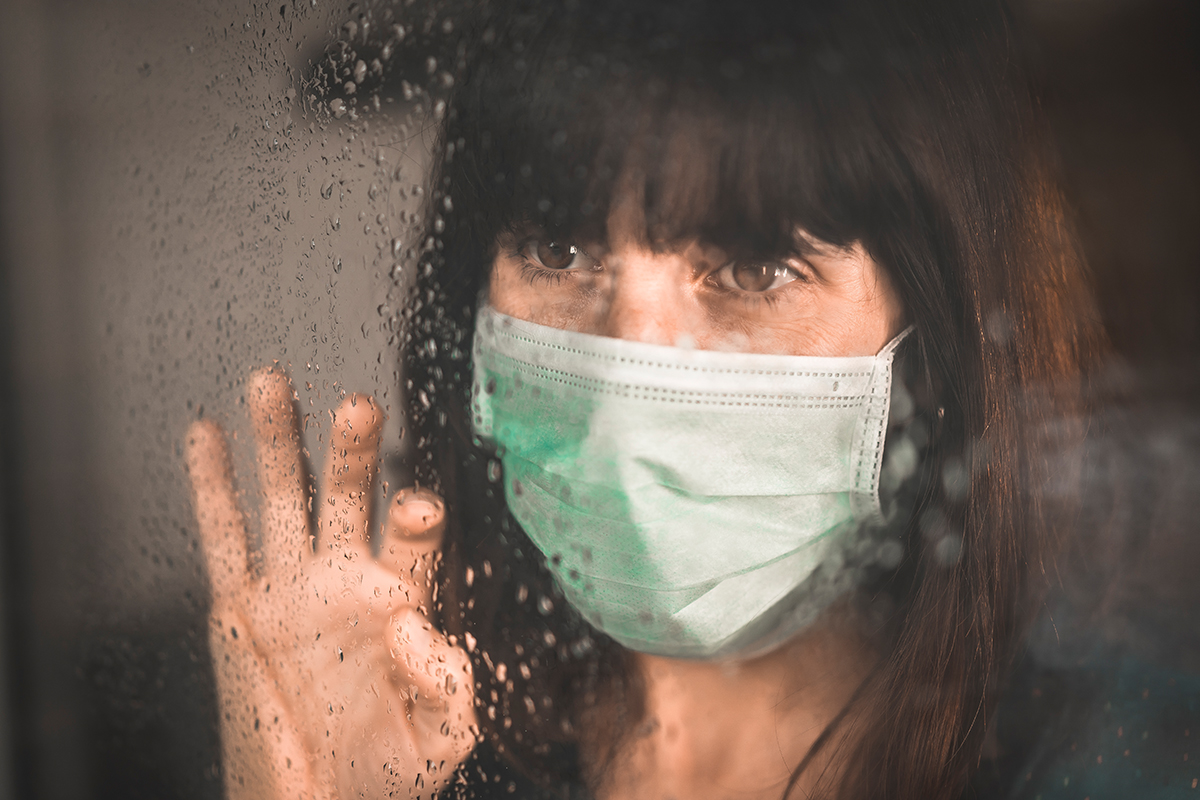For the past several weeks, we have been told the importance of staying home and practicing social distancing. Although the shelter in place mandate has been lifted and our society moves to the next reopening phase, many people still do not feel ready to leave their homes. The news is still filled with distressing and confusing messages. You may be wondering, is my fear excessive? Do I have agoraphobia?
What is agoraphobia?
People often associate the fear of leaving the home with the term “agoraphobia.”
Agoraphobia is a clinical diagnosis that involves fear of certain environments, situations, or places. Agoraphobia does not necessarily mean the person always stays at home, rather fears cause the person to avoid certain situations and places in which they feel “unsafe.” This feeling may be due to a variety of reasons such as being in a large crowd, feeling like there is not a clear escape or way to get help, or the situation reminds them of a place where they previously experienced an intense panic attack.
Those with agoraphobia tend to avoid the places and situations that cause intense fear or panic. Over time, this avoidance increases to a greater number of places and the person attempts to remain in the few places that feel “safe.”
Agoraphobia vs. Health Anxiety
The coronavirus has led many people to develop symptoms that resemble agoraphobia. Fears related to coronavirus most likely reflect a different diagnosis – Health Anxiety (aka Illness Anxiety Disorder). Health anxiety involves preoccupation and fears about one’s health that causes significant distress and impairment in everyday functioning.
It is understandable to be afraid of the coronavirus and take precautions to keep you safe. Health anxiety is when this fear is excessive or irrational and the person is taking steps significantly beyond what it recommended by medical professionals to the point that it is interfering with their mental and physical health.
For example, the coronavirus has increased awareness of the importance of hand washing. Most medical professionals recommend washing your hands for approximately 20 seconds. Someone with health anxiety may feel the need to wash their hands for 30 minutes or more to keep safe. This is significantly excessive to what experts recommend. It may also be counterproductive – washing you hands excessively dries out and cracks the skin, which can lead to increased risk of infection. This is an example a behavior driven by anxiety – washing for longer may help decrease anxiety and make the person feel safer and in control. But in reality this behavior is no longer rational or helping keep oneself healthy.
Similarly, many people may feel that the only way to remain safe during the pandemic is to stay in their homes at all times. Is this rationale or is this health anxiety?
How do I know if my anxiety about the coronavirus is excessive?
- Talk to your primary care physician about your health risks and discuss what they recommend in terms of preventative measures. Discuss the steps you are currently taking and get their opinion about whether these are appropriate or if they potentially could indicate health anxiety.
- Ask yourself under what situation would you be willing to leave the house? If there was a fire in your house, would you be willing to immediately leave? While this is an extreme example, if you were hesitant to answer or made anxious by this thought it might suggest your anxiety is excessive and potentially counterproductive. For example, your health may be at greater risk if you are not able to leave the house to seek help in case of a medical emergency.
- Are you missing out on important aspects of life? It is reasonable and appropriate to make adjustments to your work and social life in these times. However, if fear of the coronavirus is preventing you form doing your job, see family/friends, exercise, or other necessary aspects of life this suggests that you may need additional support for anxiety. While we may have to change the way we work, socialize, and exercise it is still important to mental and physical health that we find ways to do this appropriately.
What can I do if I’m afraid to leave my house because of the coronavirus?
If you are experiencing significant health anxiety and are afraid of leaving the home, consider reaching out to a mental health professional. Online teletherapy can be conducted from your home. Chicago Mind Solutions has expert clinicians who specialize in the treatment of health anxiety. Contact our clinic by calling (224) 723-5050 or emailing prachi@chicagomindsolutions.com to schedule an appointment.






